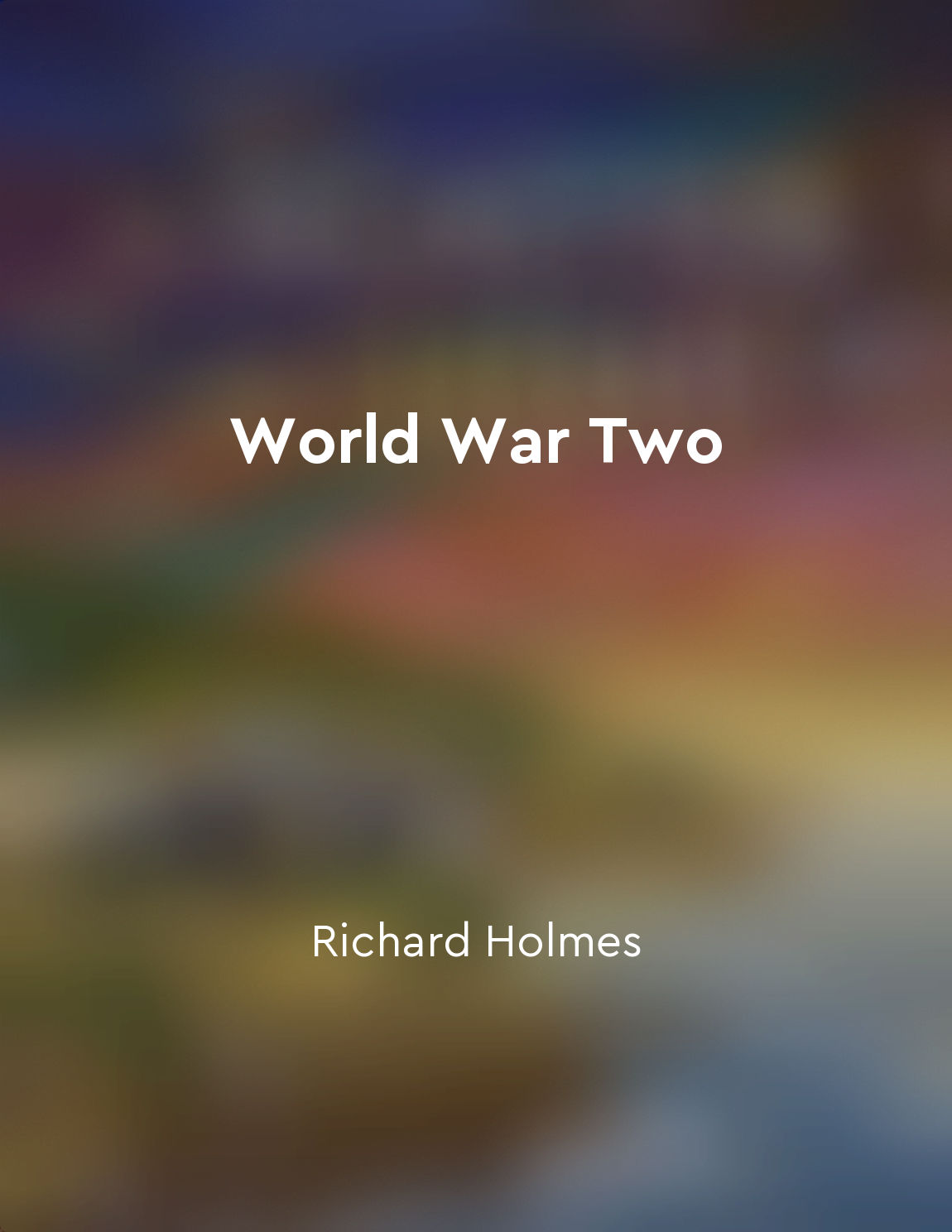Ideologies clashed from "summary" of World War Two by Richard Holmes,Ann Kramer,Charles Messenger
The clash of ideologies was a central theme of World War Two. The conflict pitted the democratic principles of the Allied powers against the autocratic regimes of the Axis powers. On one side stood nations that championed individual freedoms, human rights, and the rule of law. On the other side were states that embraced totalitarianism, military aggression, and the suppression of dissent. The clash of ideologies was not just a theoretical or abstract concept. It played out in the actions and policies of the warring nations. The Allies fought to defend democracy, liberty, and equality. They believed in the value of diversity, tolerance, and cooperation. In contrast, the Axis powers sought to impose their will through force, intimidation, and propaganda. They rejected the principles of democracy and sought to establish authoritarian rule. The clash of ideologies also had a profound impact on the conduct of the war. It influenced military strategy, propaganda efforts, and diplomatic relations. The Allies sought to mobilize public opinion in support of their cause, highlighting the moral imperative of defeating tyranny and oppression. The Axis powers, meanwhile, sought to justify their actions through appeals to nationalism, racism, and militarism. The clash of ideologies extended beyond the battlefield. It shaped the post-war world order, influencing the creation of the United Nations, the Universal Declaration of Human Rights, and other international institutions. The legacy of World War Two continues to shape global politics, with democratic ideals and human rights remaining central concerns in the ongoing struggle for a more just and peaceful world.Similar Posts
Dialogue and understanding are essential in overcoming the myth of religious violence
The idea that religious violence is a distinct and uniquely dangerous phenomenon has become deeply ingrained in the modern worl...
Economic interests contribute to conflict escalation
One of the central arguments put forth in 'The Origins of the First World War' is the idea that economic interests played a sig...
Propaganda played a crucial role in shaping public opinion
Propaganda, with its power to manipulate perceptions and beliefs, was a pivotal force in molding the thoughts and attitudes of ...

Homo sapiens are the only surviving species of the genus Homo
In the vast family tree of the Homo genus, Homo sapiens stand alone as the sole surviving species. The other branches of this e...
The war led to significant changes in warfare tactics
The war ushered in a new era of warfare tactics, forcing military strategists to adapt to the changing nature of combat. Gone w...
The arms race led to the doctrine of mutually assured destruction
The arms race between the United States and the Soviet Union had reached a point where both sides had accumulated enough nuclea...

Social movements fought for equality and justice
In the course of the past two centuries, there had been a great many social movements. These movements had one common aim: the ...
The war reshaped the geopolitical landscape
The Great War brought about a fundamental transformation in the geopolitical landscape of the world. Prior to the conflict, the...

Diplomatic relations reshaped
The tumultuous years of World War Two brought about significant changes in diplomatic relations between nations. Traditional al...
